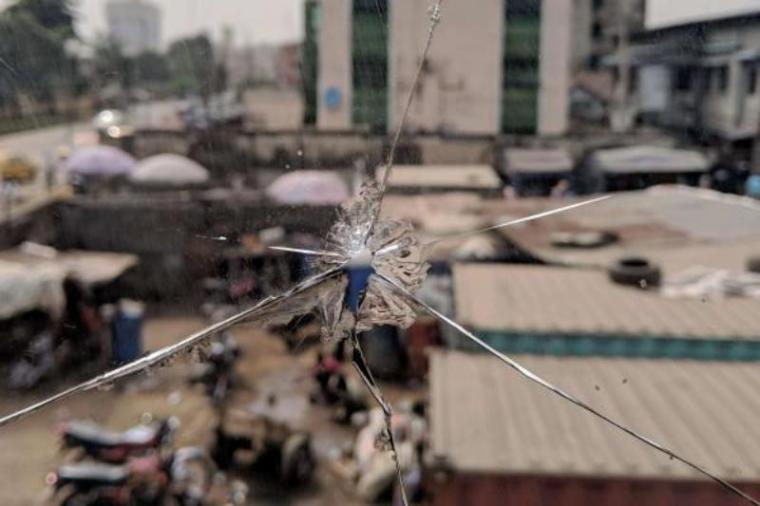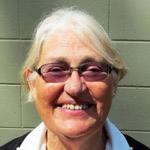
Every Sunday throughout August 2020, a church in Narayi, a suburb on the south eastern edge of Kaduna City in Nigeria, is holding a prayer and protest event in response to violence ravaging southern Kaduna.
Background to terrorism in Nigeria
Despite being resource-rich and having the largest economy in Africa, Nigeria has more people living in poverty than any country on earth. This poverty is fertile ground for helplessness and vulnerability. Many disenfranchised people may join radical groups to fight against their situation, resorting to violence to assert themselves in a semblance of power in their hopelessness.
The name Boko Haram comes from the Hausa word boko, which means animist, Western or simply un-Islamic education and culture, and the Arabic word haram, which means forbidden. For Boko Haram, boko is fitna: i.e. something that can shake the faith of Muslims and lead to apostasy. For this reason, boko must be haram.
The group was founded in 2002 in the north-eastern city of Maiduguri, capital of Borno State, by a religious leader named Sheikh Mohammed Yusuf. When Sheikh Yusuf died in police custody on 31 July 2009 Boko Haram declared jihad against the government of Nigeria. In mid-June 2010 Boko Haram formalised its links to al-Qaeda in the Islamic Maghreb (AQIM). AQIM is seeking to gain 'strategic depth' in sub-Saharan Africa and the solid foothold in Nigeria required for operations in West.
Essentially Boko Haram is pursuing an Islamic freedom -- i.e. freedom from fitna (anything that could shake the faith of a Muslim) -- a freedom that is essentially no freedom at all.
Since 2010 Boko Haram has had a turbulent history with splits and disagreements, but while the factions may differ on strategy, they have a common goal: Christians are the enemy and Christianity is a problem to be eliminated. Fulani herdsmen and bandits have been recruited to participate in the jihad.
Attacks on Christians
Nigeria’s Kaduna State is divided into a predominantly Hausa-Fulani Muslim north with mainly Christian ethnic groups in the south.
In July 2020, Fulani militant attacks on villages in southern Kaduna have increased significantly. Many Christian villagers were killed - shot, hacked or burnt to death, often in their beds and many more wounded.
Thousands of villagers have been displaced and are now being cared for in church-run camps. Despite the southern regions being under a 24-hour curfew, Fulani militants move freely, murdering, terrorising and ethnically cleansing at will; nobody is ever arrested! Neither the government nor the security services seem willing or able to provide security.
Cameroon's Centre for Disarmament, Demobilisation and Reintegration (launched 2019, in Extreme North region) reports that growing numbers of mostly-Nigerian ex-militants, children and women (sex-slaves) are escaping, surrendering and seeking rehabilitation. The Centre needs help to meet the growing demand.
The poverty of the Nigerian people is directly connected to massive corruption at the highest level of Government and Defence. Corruption is also why the government does not send troops to come to the aid of villagers being attacked and killed by terrorists.
Corruption is prolonging conflict and perpetuating the Christian crisis in Nigeria's North and Middle Belt. Government and military elites exploit the conflict with Boko Haram to enrich themselves while depriving rank and file soldiers of basic resources, including food and ammunition!
One example is when the Borno state governor Babagana Zulum set out in a heavily-armed convoy towards the town of Baga, in Borno's far north-east, to visit a camp for internally displaced persons and distribute food relief there. But the governor's convoy was attacked on the edge of the town. An army garrison was only 5km down the road, but it was the Nigerian armed forces carrying out the attack, contrary to army reports.
A massive fraud has been revealed in military procurement, whereby government funds have been secured on the basis of fake contracts for resources which were never delivered - 'everything from food and ammunition to firearms, helicopters and Alpha jets, totaling as much as US$15 billion'.
Corruption explains why Nigerian soldiers are deployed into conflict zones with insufficient rations and malfunctioning weapons and why those who survive return defeated and demoralised.
Corruption explains why insecurity has escalated to crisis levels and why Boko Haram has not been defeated but has instead grown stronger. Corruption explains why a catastrophic Christian crisis involving ethnic cleansing and genocide persists throughout Nigeria's North and Middle Belt, bringing untold suffering to multitudes.
The Barnabas Fund reports that Nigerian Christians have called on the International Criminal Court to act against the genocide perpetrated by Boko Haran, Fulani militants and other extremists.
Southern Kaduna's imperiled and traumatised Christians need our prayers
Let us bring our own prayers and protests to the Lord on behalf of the grieving Nigerian church. Let us ask God to intervene – to bless, empower and protect the Christians and others who bear the brunt of these attacks, and to overturn every evil and selfish plot.
Let us join with Job’s prayer: 'As for me, I would seek God, and to God would I commit my cause, who does great things and unsearchable, marvelous things without number ... He frustrates the devices of the crafty, so that their hands achieve no success ... So the poor have hope, and injustice shuts her mouth' (From Job Chapter 5 verses 8-16 ESV).
Let us pray for God to protect Cameroon's Centre for Disarmament, Demobilisation and Reintegration and supply it with everything it needs to rehabilitate disillusioned and traumatised men, women and children who have risked their lives in search of new life.
Let us pray for blessing for all who risk their lives to share the Gospel with Muslims. And let us speak out in the name of Jesus, that violence and greed be replaced with peace, repentance and justice.

Aira Chilcott is a retired secondary school teacher with lots of science andtheology under her belt. Aira is an editor for PSI and indulges inreading, bushwalking and volunteering at a nature reserve. Aira’s husband Bill passed away in 2022 and she is left with three wonderful adult sons and one grandson.
Aira Chilcott's previous articles may be viewed at http://www.pressserviceinternational.org/aira-chilcott.html